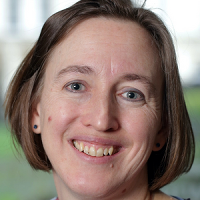Dr Elizabeth Soilleux Browsing the diagnostics menu for gluten: a better test for coeliac disease?
1 in 100 people in the UK is estimated to have coeliac disease but only 30% of those with the condition have been diagnosed. Obtaining a diagnosis of coeliac disease can be challenging and there are two key limitations to the current diagnostic tests. First, to obtain accurate results, gluten must be eaten in more than one meal a day for at least six weeks before testing which can be challenging for people who are experiencing symptoms, particularly as they may be facing long waiting times for endoscopy. Secondly, sometimes biopsy results can be unclear.
Although most of the inflammation of the small intestine disappears on a gluten free diet, we now know that there is a permanent change to the gluten specific T cells. This research looks at the DNA of T cells taken from biopsy samples and, using a machine learning algorithm, classifies people with and without coeliac disease. Most importantly, the algorithm is able to identify people with coeliac disease who have been on a gluten free diet for at least six months.
Biography
 Liz Soilleux is an associate professor and honorary consultant in pathology at the University of Cambridge. Aside from her clinical practice and university teaching roles, her research interests lie in identifying novel methods for the diagnosis of both coeliac disease and T-cell lymphoma, with a particular focus on molecular immunology and the application of novel mathematical algorithms to digital images and bioinformatic data.
Liz Soilleux is an associate professor and honorary consultant in pathology at the University of Cambridge. Aside from her clinical practice and university teaching roles, her research interests lie in identifying novel methods for the diagnosis of both coeliac disease and T-cell lymphoma, with a particular focus on molecular immunology and the application of novel mathematical algorithms to digital images and bioinformatic data.
Her research team’s aim is to improve the objectivity of diagnosis and efficiency of workflow, perhaps with future automation of aspects of diagnostic histopathology.